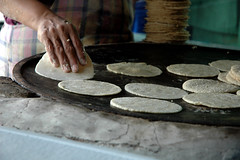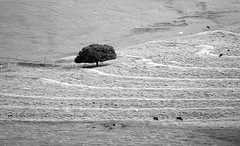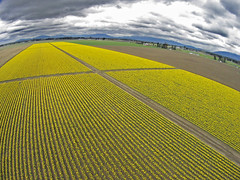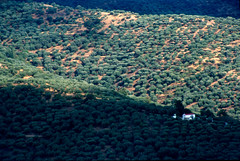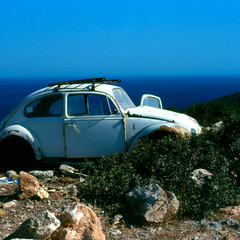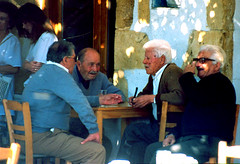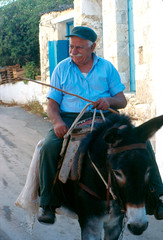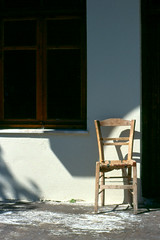In the summer of my freshman year my uncle generously gave me a job in the Skagit Valley -- a curvy waistline of landscape that lies halfway between Seattle and Vancouver, about an hour and a half distant from either.
My plan had been to spend the summer in Seattle, stay with my grandparents, and work somewhere nearby, but nobody wanted someone who’d be leaving at summer’s end and I was too lousy at lying to pretend that I’d be sticking around, so my uncle (at my aunt’s gentle suggestion) gave me an administrative job in a cable office that he was just opening up in LaConner. I needed to work: nobody was paying my college tuition but me. So I took it.
The office occupied the first two floors of an old three-story house; I lived that summer in the top floor which had a bathroom of its own, but the kitchen of course was on the main level so I always felt like I was still at the office while I was making my dinner. Or sneaking down in my PJs to make a pot of coffee before everyone else arrived.
I spent the weekends in Seattle, but the weeknights were long and quiet and mostly lonely. The noise and busy friendships of school were subsumed to silence under a single ribbon that I used to tie up the letters, so many letters, that we all wrote back and forth. (Internets being not so big back then.)
But the memories from then are sharp and vivid; loneliness has a way of doing that. After the office closed I’d ride my borrowed bike through the unending fields, that sometimes grew tulips and daffodils and often grew every other kind of wonderful produce. Once I stupidly raced a crop duster that was lowering its poison dust across the field. (yeah. check in on me in another ten years. by then the cancer should have me.)
In the long twilit nights (Pacific Northwest summer nights have a way of stretching on past 10PM) I dutifully read the Englishman Somerset Maugham (wanting to love him. hating him so much.) and guiltily, greedily read LaConner local
Tom Robbins.
I was embarrassed to love Robbins as much as I did -- his stuff was so earthy and juicy and vernacular. His proximity was palpable: he lived in town, was one of our cable customers even, calling the office to complain about his service; and, as a contemporary American writer -- not someone dead and dry and removed -- I didn’t know how to squeeze him into my idea of “great literature” as a college freshman who felt like I was already running out of time to read all the “important” stuff.
Thank god for growing up and learning how true it is that even
cowgirls get the blues.
Robbins wrote a lovely description of the dawn kissing that valley in one of those books which I have utterly failed to find online (I’m lazy, and I reach my limit after half a dozen misguided queries -- plus I was distracted by a sweet snippet about belly buttons).
But all of this is to say that I received in the mail yesterday a tender view to that valley, a catalog for a exhibition of photography called
Harvesting Light: Images of Contemporary Skagit Farm Life, produced by the
Skagit County Historical Museum and curated by a friend, Karen Marshall, who is now Director of the museum.

The book catalogs a project that was born of photographer Vince Streano’s idea to have local photographers document a year in the life of Skagit Valley Farms. Eleven photographers participated and 4,000 images were produced; a selection of these were then curated by Marshall for the show.
The results are poetic -- large sweeping landscapes, laboring hands, and the product their labor produces.
But it’s also nearly elegiac -- Skagit County farmland is disappearing, of course. The earth that we need to sustain us is being eaten up by real estate development, like it is across much of America. And without much thought. As David Hedlin, one of the local voices that pepper this volume says: “We’re basically a society whose idea of long-range thinking is buying green bananas.”
I’ll be filing a friendly complaint with Karen regarding the impossibility of buying this volume online -- it doesn’t appear to be listed with Amazon or on the Skagit County Historical Museum’s website. In the meantime I can put you in touch with her for your own copy -- or you can stop by for that
cup of tea and take a look at mine while the water boils.
p.s. You can also browse the
Skagit County Flickr Pool »The pool doesn’t include shots from the show, but it will give you a sense of that beautiful place.


